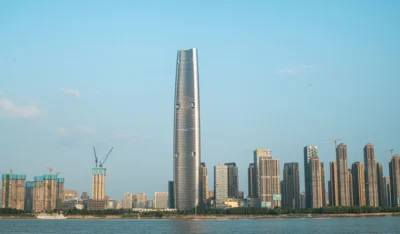China’s buildings are watching you
Fortified with everything from IoT to AI, Chinese properties use proptech to build a better picture of residents and consumers

Development firms in China are parlaying the power of proptech to refine the ways people live in and interact with their properties, reported Bloomberg.
Chinese developers are collecting big data, installing sensors through the internet of things (IoT), and using artificially intelligent mechanisms to automate property management, improve retail experiences, and monitor security.
In almost 1,000 properties managed by Country Garden’s affiliated service unit, for example, sophisticated surveillance systems record footage three times per minute, to be interpreted by a cloud-based AI platform. The systems yield richer data than those captured by a few cameras in real time, allowing managers to closely observe multiple situations, involving everyone from non-residents to the security guards. Computer algorithms can even perform behavior analysis based on the footage to track lost children.
More: What the US-China trade ceasefire means for real estate
Every time you shop at a shopping mall by Dalian Wanda, a computerised ID recognises you from your last visit, thanks to the developer’s Huiyun management system. The system also stores your age, gender, and shopping patterns, informing the company’s decisions regarding merchant layouts.
Similarly, Shui On Land uses facial recognition technology to gather data on occupants in its office buildings. When it discovered an office tower had 70 percent female workers, the company correspondingly geared five floors of that building’s retail podium to female-oriented establishments.
“In China, there is a very dynamic proptech ecosystem, quite mature and advanced at all levels,” JLL’s Asia Chief Executive Officer Anthony Couse was quoted as saying by Bloomberg.
China’s growing engagement with proptech comes as the government fends off accusations it is pouring plenty of capital into mass surveillance, especially in the Xinjiang region. The country accounted for 36 percent of investment into proptech startups worldwide from 2013 to 2017.
Recommended
6 developments driving Asia’s green real estate shift
Developers are being incentivised to push a green agenda into daring new realms
The Philippines’ LIMA Estate drives sustainable industrial growth
LIMA Estate models a citywide vision that uplifts workers while appealing to climate-conscious employers
Malaysia property market rebounds with foreign interest and growth
The nation’s property market is stirring to life, fuelled by foreign buyers and major infrastructure drives
China’s renewable energy surge redefines housing norms and development
From exporting solar panels to building entire green-powered neighbourhoods, China’s renewable surge is redefining housing norms







